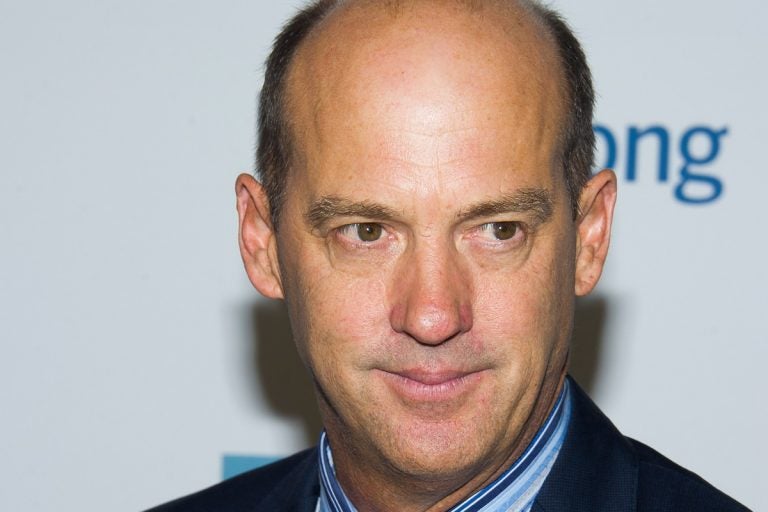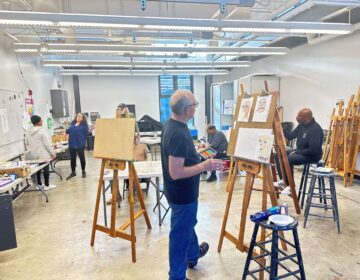As sexual abuse victims find their voice, don’t forget the process of their recovery
I have been counseling survivors of all types of abuse and assault for over 20 years. It is not uncommon for me to meet someone decades after their trauma occurred.

Anthony Edwards is shown in 2014 in New York. (Charles Sykes/Invision/AP)
Every day it seems someone is coming forward with his or her story of being sexually assaulted, harassed, or abused by a high-profile man in the film and television industry, politics, and journalism. Media outlets are dedicating hours of time and thousands of words to name the accusers and allow them to tell their stories. What’s missing is an explanation about what someone can do after he or she comes forward. Wider society is finally beginning to believe that sexual assault and abuse happen. But people need to understand more about the fallout of these traumas and where we go from here.
I was struck by actor and director Anthony Edwards’ admission that he was sexually abused as a teenager. He said he stayed silent because he was afraid he would not be believed. In an NBC interview, Edwards went on to explain that, at the time, and for years to follow, he thought the abuse was his fault. I have been counseling survivors of all types of abuse and assault for over 20 years. Most of my patients come to see me when they get to the point where their abuse is ruining many parts of their lives. It is not uncommon for me to meet someone decades after their trauma occurred.
A couple of years ago I sat with a man who told me he was sexually abused by two different men when he was a young teenager. He lived in a vessel of shame and fear for over 40 years. He found himself in a relationship with a woman who recreated his abuse by acting toward him in demeaning and belittling ways. As he was working through his abuse with me in therapy, he brought up several examples in life when he felt like something that happened was his fault. For example, he blamed himself for his mom’s death saying, “If I had stayed at her house longer that night maybe she would not have died.”
It takes patients years to make sense of the fear and sense of responsibility that follows any type of assault. He said, “It took me 25 years to realize I was in a relationship with a partner who treated me with such disrespect and hurt.”
Edwards’ courage, and the bravery of the dozens of women and men who have recently come forward, has put our society at a “tipping point.” As more and more victims of sexual abuse find their voice, we get closer and closer to exposing and ending the rape culture that stems from unhealthy attitudes about gender and the normalization of sexual abuse. But for all of these victims and anyone else who experiences such hurtful boundary violations, it is crucial to understand that it is almost impossible to recover without help.
Over half of the patients checking into rehab for addictions and eating disorders have reported a history of some type of abuse. These statistics are not new. What is changing is that more people are finding their voice. The solidarity of the #Metoo campaign will help save many people’s lives from being ruined. But listening to someone’s story is not enough. We need to encourage everyone we care about to seek some type of counseling. And we need to be patient with our loved ones after they get into therapy.
It takes years for survivors to work through all aspects of their assault or abuse. The layers of pain and shame that follow are like an onion that needs to be peeled to its core. Everyone heals at her or his own pace. Many patients will need extra help in addition to outpatient therapy to manage symptoms of anxiety, depression, addiction, and post-traumatic stress disorder. What I have learned after recovering from years of my own childhood abuse is that I could not just “get over it.” I needed to learn how to manage the triggers and flashbacks, and move beyond the feelings that kept me in an unfulfilled life.
Edwards and many of these women and men are at the beginning of that process, as they cope with the reaction of society after speaking courageously about what happened to them. With time, space, and a lot of help from an experienced trauma therapist, there is hope for each of them. No one should have to suffer as many of these people did for years following their abuse. Getting help is a way to end the internal torture that follows acts of betrayal committed against them and their bodies.
—
Shari Botwin has been counseling survivors of trauma and abuse in her Cherry Hill private practice for over 20 years. She has appeared on several national media outlets to give commentary on the Cosby trial, the Paris attacks, and the Orlando shootings. She is working on her second book, “Conquering Trauma,” and will be featured in a documentary on sexual assault recovery later this year.
WHYY is your source for fact-based, in-depth journalism and information. As a nonprofit organization, we rely on financial support from readers like you. Please give today.




